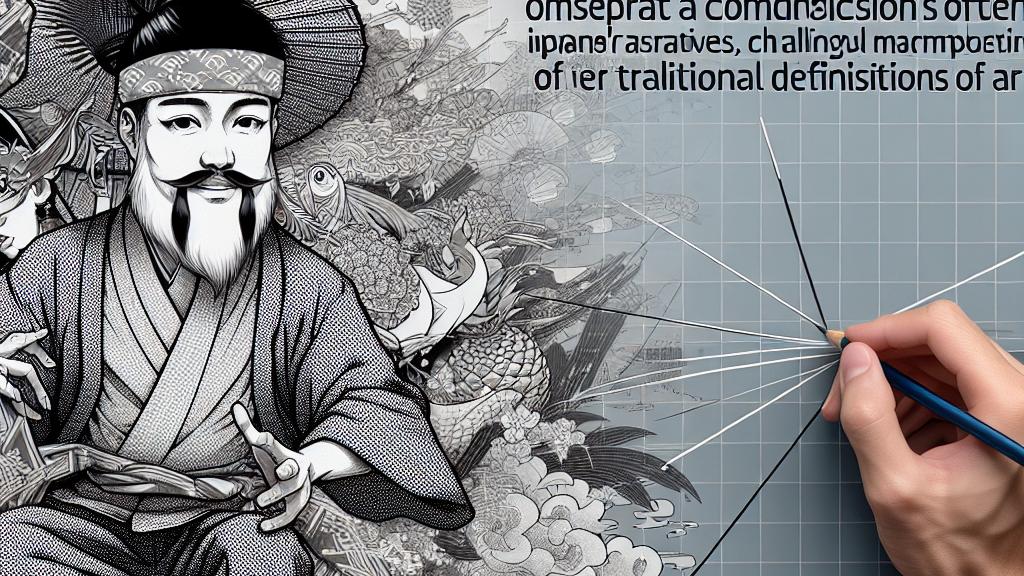From Hate to Admiration: Understanding Takashi Murakami's Art!
Overview
- Takashi Murakami blends traditional Japanese artistry with modern otaku culture.
- His work expands the definition of art by challenging elitist Western norms.
- Recent dialogues reveal a growing recognition of anime and manga's artistic value.

Murakami's Artistic Journey and Impact
Born in Tokyo in 1962, Takashi Murakami has revolutionized the contemporary art scene by fusing traditional Japanese aesthetics with elements of modern pop culture, particularly anime and manga. His artistic approach challenges the established narratives that often marginalize non-Western art forms. Recent discussions, especially his engaging dialogue with leftist critic Kohei Saito, have shed light on his transformation from a misunderstood figure to a celebrated artist, illustrating how personal growth in understanding can reflect broader shifts in cultural perspectives. His ongoing exhibition in Kyoto encapsulates this evolution, showcasing an array of striking pieces that provoke thought and invite viewers to reevaluate their definitions of art.
Navigating Art Market Dynamics
In a world where Western art standards often reign supreme, Murakami's work stands out by asserting that genuine artistry transcends cultural boundaries. His strategic engagement with high-end art markets not only elevates elements of otaku culture but also creates meaningful dialogue surrounding the nature of art itself. By appealing to elite collectors, Murakami positions his works as vital cultural expressions rather than mere commodities. This dynamic reframing compels audiences to understand that the value of art lies not solely in its price tag but in the narratives it conveys and its potential connections to individual and collective identities.
Cultural Shifts and Future Directions for Japanese Art
With Japan's contemporary art market now exceeding ¥1 trillion, there is a clear resurgence of interest in culturally rich expressions that were once overlooked. Murakami plays a critical role in advocating for otaku culture as a vital part of the global artistic landscape. His exhibitions, with their interactive elements and bold visuals, challenge viewers to confront their preconceptions about art and its accessibility. As anime and manga continue to gain recognition worldwide, Murakami's efforts highlight a transformative journey where diverse cultural narratives are validated, enriching global art discussions and affirming that the beauty of art lies in its diverse origins and meanings.

Loading...